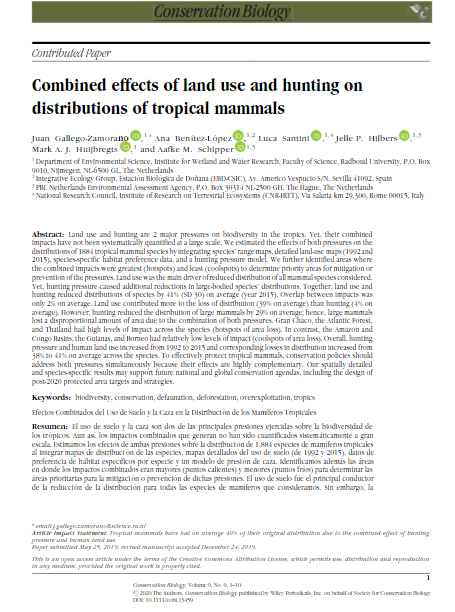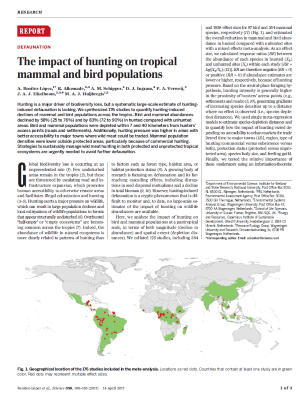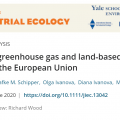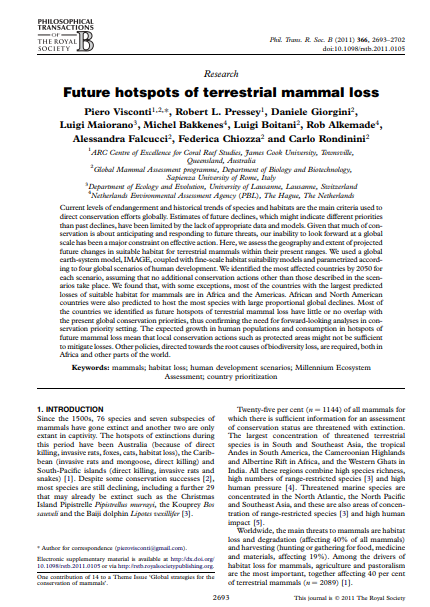Tropical mammals have lost on average 40% of their original distribution due to the combined effect of hunting pressure and human land use.
Land use and hunting are two major pressures on biodiversity in the tropics. Yet, their combined impacts have not been systematically quantified at a large scale. We estimated the effects of both pressures on the distributions of 1,884 tropical mammal species by integrating detailed land‐use maps (1992 and 2015), species‐specific habitat preference data, and a hunting pressure model. We further identified geographical hotspots and coolspots of the combined impacts, indicating priority areas for mitigation or prevention of the pressures.
We found that land use is the main driver reducing the distribution of all mammal species considered. Yet, hunting pressure causes considerable additional reductions in large‐bodied species’ distributions. Together, land use and hunting reduced the distributions of species by 41% (± 30%) on average (year 2015). Overall, we found a small overlap between the pressures (2% on average), with land use contributing more to the loss (39% on average) than hunting (4% on average). However, hunting reduced the distribution of large mammals by 29% on average, hence large mammals suffered a disproportional amount of area loss by both pressures combined. We identified hotspots of combined pressures in the Gran Chaco, the Atlantic Forest or Thailand. In contrast, the Amazon and Congo basin, the Guianas, or Borneo were identified as coolspots.
We further found that, overall, both impacts increased from 1992 to 2015, with losses in distribution increasing from 38 to 41% on average across the species. To effectively protect tropical mammals, conservation policies should address both pressures simultaneously, as their effects are highly complementary. Our spatially detailed and species‐specific results may support future national and global conservation agendas, including the design of post‐2020 protected area targets and strategies.

Authors
Juan Gallego-Zamorano, Ana Benítez-López, Luca Santini, Jelle P. Hilbers, Mark A.J. Huijbregts, Aafke M. Schipper




